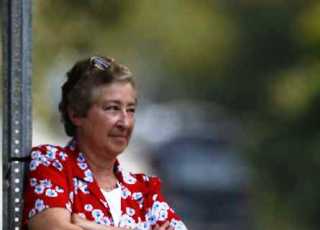|
Article Courtesy of The Tampa Bay Times By Sandra J. Gadsden Published April 7, 2012
Neighborhood disputes, while common, can vary in scope. Some have quick resolutions, while others reflect ongoing feuds with frequent calls to the St. Petersburg Police Department.
In Lakewood Estates, the disputes have gotten to the point where some residents wonder if the neighborhood has a racial problem.
13 years, though I don't belong to the association.
The neighborhood consists of 1,630 homes. The Lakewood Estates Civic Association has 317 paid members and more than 460 who signed up for LECA emails, Ellis said. It features sweeping vistas along the fairways of its centerpiece — the St. Petersburg Country Club. The neighborhood borders Boyd Hill Nature Preserve to 54th Avenue S and from Dr. M.L. King Jr. Street to 31st Street. Most residents are unaware of the disputes that their neighbors have with Ellis. But for a select few, problems persist. Those residents complain that Ellis is an out-of-control vigilante. "Judy Ellis is not an extension of the St. Petersburg Police Department, and no homeowner should be harassed or aggravated by her actions," wrote Milford Strong in a letter to Mayor Bill Foster. "She has a habit of following people and running them down with flashing lights." Strong, who is black, alleges there is racism in Lakewood and Ellis' antics "must be addressed quickly to avoid any physical confrontation that could lead to a racial blowout." But Ellis, who is white, scoffs at the criticism. "The only claim of racism is from people who have no other card to play," she said. Bonnie Rocks, a Lakewood board member, who is white, has nothing but praise for Ellis. "She is the epitome of a neighborhood president," she said. "I don't know anyone who has worked harder." Ellis also leads the crime watch group, which is the source of many complaints from residents who have encountered her on patrol. One such resident is Robin Perry, a black resident who says he's being harassed. Ellis said she has warned him about speeding and loud music. "She was driving behind me flashing her lights, trying to pull me over," he said. "After I called the police, she just started sending me letter after letter after letter." Ellis contends she was just "trying to get Mr. Perry to stop and talk." But following motorists and cars with booming music is an ill-advised practice. And city officials have expressed concerns about nonsanctioned groups patrolling neighborhoods. "The Lakewood Crime Watch is not sanctioned by the St. Petersburg Police Department," said police spokesman Bill Proffitt. Ellis intends to keep it that way. "We don't want the city to come in and tell us what to do." Years ago the crime watch was sanctioned by the city, but that changed when the group merged with the civic association. Under Ellis' leadership, the association has grown. But so have the complaints. Today, crime watch members don caps, T-shirts and magnetic car signs on the theory that high visibility deters crime, Ellis said. However, police spokesman Mike Puetz warns that crime watch volunteers are just like any other resident, with no police training or authority. Police officials are aware of the complaints. "We prepared a file of Judy's police reports a month or so ago for internal purposes after hearing of so many complaints about her," Proffitt said. Perry also compiled a file of eight letters and an email he said he received from Ellis. Most of the letters obtained by the Times, some of them inflammatory, are on association letterhead, or from Noise Free Florida, an organization Ellis represents. One letter signed by Ellis suggests Perry "find another place to live." Perry, 40, said he grew up there and the home has been owned by his family since 1979. "We don't have racial issues in Lakewood," said Ellis, adding that a recent meeting drew 80 residents and "about half of the people there were black." Patsy Wedding, who is white, and a former crime watch coordinator, agrees. "We're all neighbors and we really care about the neighborhood." "This is probably the most diverse neighborhood in the city," she said, adding that Ellis has been a strong leader. "I'm sure there are people who don't like her." While more than 40 pages of police reports reveal that most of Ellis' calls have targeted black residents, she has also taken on others, including the country club. A 2008 report states Ellis confronted club officials for failing to warn residents of pesticide treatment to the golf course. She was referred to fish and wildlife officials. A frustrated Ellis threatened to blow up the St. Petersburg Police Department, according to a fish and wildlife official, who later called police. Antonio and Trika Carroll, who live next door to Ellis, claim to be targets. In a letter to the city, Mrs. Carroll, who is black, wrote that Ellis called police 12 times (when the house was vacant and being remodeled in late 2006). But since moving in in January 2007, there have been 37 calls to police. Most were noise related — loud music and barking dogs. Meanwhile, they await a date for mediation with Ellis, who filed a complaint in court against them in January. The Carrolls say they are staying put. "We have just as much right to be here as she has." City officials are aware of the tension, but have few answers. "I'm here as a liaison because (associations) are all private special interest groups," said Susan Ajoc, manager of Neighborhood Partnership. "The concern is she's going to follow someone and there's going to be some interaction. Things could escalate fairly quickly." |
